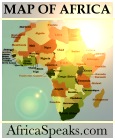The United States and Middle East: Why Do "They" Hate Us?
Posted: Monday, September 17, 2001( Stephen R. Shalom ) The list below presents specific incidents of U.S. policy in the Middle East. The list minimizes the grievances against the United States in the region because it excludes more generalized long-standing policies, such as U.S. backing for authoritarian regimes (arming Saudi Arabia, training the secret police in Iran under the Shah, providing arms and aid to Turkey as it ruthlessly attacked Kurdish villages, etc.) The list also excludes actions of Israel in which the United States is indirectly implicated because Israel has been the leading or second-ranking recipient of U.S. aid for many years and has received U.S. high-tech weaponry and the diplomatic benefit of U.S. veto power in the Security Council.
1948: Israel established. U.S. declines to press Israel to allow expelled Palestinians to return.
1949: CIA backs military coup deposing elected government of Syria.
1953: CIA helps overthrow the democratically-elected Mossadeq government in Iran (which had nationalized the British oil company) leading to a quarter-century of repressive and dictatorial rule by the Shah, Mohammed Reza Pahlevi.
1956: U.S. cuts off promised funding for Aswan Dam in Egypt after Egypt receives Eastern bloc arms.
1956: Israel, Britain, and France invade Egypt. U.S. does not support invasion, but the involvement of its NATO allies severely diminishes Washington's reputation in the region.
1958: U.S. troops land in Lebanon to preserve "stability".
early 1960s: U.S. unsuccessfully attempts assassination of Iraqi leader, Abdul Karim Qassim.
1963: U.S. reported to gives Iraqi Ba'ath party (soon to be headed by Saddam Hussein) names of communists to murder, which they do with vigor.
1967-: U.S. blocks any effort in the Security Council to enforce SC Resolution 244, calling for Israeli withdrawal from territories occupied in the 1967 war.
1970: Civil war between Jordan and PLO. Israel and U.S. prepare to intervene on side of Jordan if Syria backs PLO.
1972: U.S. blocks Sadat's efforts to reach a peace agreement with Egypt.
1973: U.S. military aid enables Israel to turn the tide in war with Syria and Egypt.
1973-75: U.S. supports Kurdish rebels in Iraq. When Iran reaches an agreement with Iraq in 1975 and seals the border, Iraq slaughters Kurds and U.S. denies them refuge. Kissinger secretly explains that "covert action should not be confused with missionary work."
1978-79: Iranians begin demonstrations against the Shah. U.S. tells Shah it supports him "without reservation" and urges him to act forcefully. Until the last minute, U.S. tries to organize military coup to save the Shah, but to no avail.
1979-88: U.S. begins covert aid to Mujahideen in Afghanistan six months before Soviet invasion in Dec. 1979. Over the next decade U.S. provides training and more than $3 billion in arms and aid.
1980-88: Iran-Iraq war. When Iraq invades Iran, the U.S. opposes any Security Council action to condemn the invasion. U.S. soon removes Iraq from its list of nations supporting terrorism and allows U.S. arms to be transferred to Iraq. At the same time, U.S. lets Israel provide arms to Iran and in 1985 U.S. provides arms directly (though secretly) to Iran. U.S. provides intelligence information to Iraq. Iraq uses chemical weapons in 1984; U.S. restores diplomatic relations with Iraq. 1987 U.S. sends its navy into the Persian Gulf, taking Iraq's side; an overly-aggressive U.S. ship shoots down an Iranian civilian airliner, killing 290.
1981, 1986: U.S. holds military maneuvers off the coast of Libya in waters claimed by Libya with the clear purpose of provoking Qaddafi. In 1981, a Libyan plane fires a missile and two Libyan planes shot down. In 1986, Libya fires missiles that land far from any target and U.S. attacks Libyan patrol boats, killing 72, and shore installations. When a bomb goes off in a Berlin nightclub, killing two, the U.S. charges that Qaddafi was behind it (possibly true) and conducts major bombing raids in Libya, killing dozens of civilians, including Qaddafi's adopted daughter.
1982: U.S. gives "green light" to Israeli invasion of Lebanon, killing more than 10,000 civilians. U.S. chooses not to invoke its laws prohibiting Israeli use of U.S. weapons except in self-defense.
1983: U.S. troops sent to Lebanon as part of a multinational peacekeeping force; intervene on one side of a civil war. Withdraw after suicide bombing of marine barracks.
1984: U.S.-backed rebels in Afghanistan fire on civilian airliner.
1988: Saddam Hussein kills many thousands of his own Kurdish population and uses chemical weapons against them. The U.S. increases its economic ties to Iraq.
1990-91: U.S. rejects any diplomatic settlement of the Iraqi invasion of Kuwait (for example, rebuffing any attempt to link the two regional occupations, of Kuwait and of Palestine). U.S. leads international coalition in war against Iraq. Civilian infrastructure targeted. To promote "stability" U.S. refuses to aid post-war uprisings by Shi'ites in the south and Kurds in the north, denying the rebels access to captured Iraqi weapons and refusing to prohibit Iraqi helicopter flights.
1991-: Devastating economic sanctions are imposed on Iraq. U.S. and Britain block all attempts to lift them. Hundreds of thousands die. Though Security Council had stated that sanctions were to be lifted once Saddam Hussein's programs to develop weapons of mass destruction were ended, Washington makes it known that the sanctions would remain as long as Saddam remains in power. Sanctions in fact strengthen Saddam's position. Asked about the horrendous human consequences of the sanctions, Secretary of State Madeleine Albright declares that "the price is worth it."
1993-: U.S. launches missile attack on Iraq, claiming self-defense against an alleged assassination attempt on former president Bush two months earlier.
1998: U.S. and U.K. bomb Iraq over the issue of weapons inspections, even though Security Council is just then meeting to discuss the matter.
1998: U.S. destroys factory producing half of Sudan's pharmaceutical supply, claiming retaliation for attacks on U.S. embassies in Tanzania and Kenya and that factory was involved in chemical warfare. U.S. later acknowledges there is no evidence for the chemical warfare charge.
http://www.zmag.org/shalomhate.htmPrinter friendly version
Send page by E-Mail

Previous Page | Zimbabwe Watch | Historical Views | Home
NOTICE: All articles are the copyright property of the writers. In accordance with Title 17 U.S.C., section 107, some material on this site is provided without permission from the copyright owner, only for purposes of criticism, comment, scholarship and research under the "fair use" provisions of federal copyright laws. Visit: http://www.law.cornell.edu/uscode/17/107.shtml for more details. If you wish to use copyrighted material from this site for purposes of your own that go beyond 'fair use', you must obtain permission from the copyright owner.










